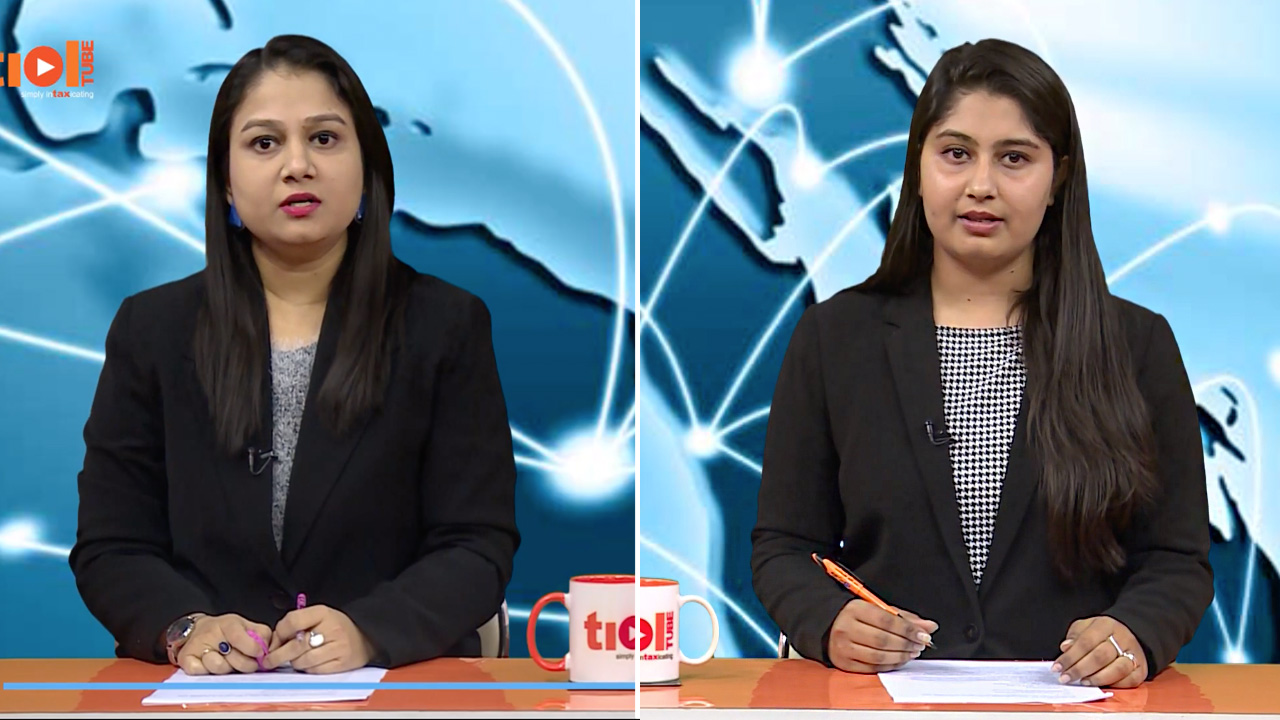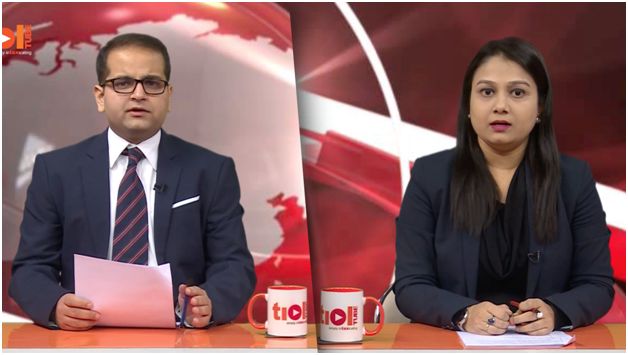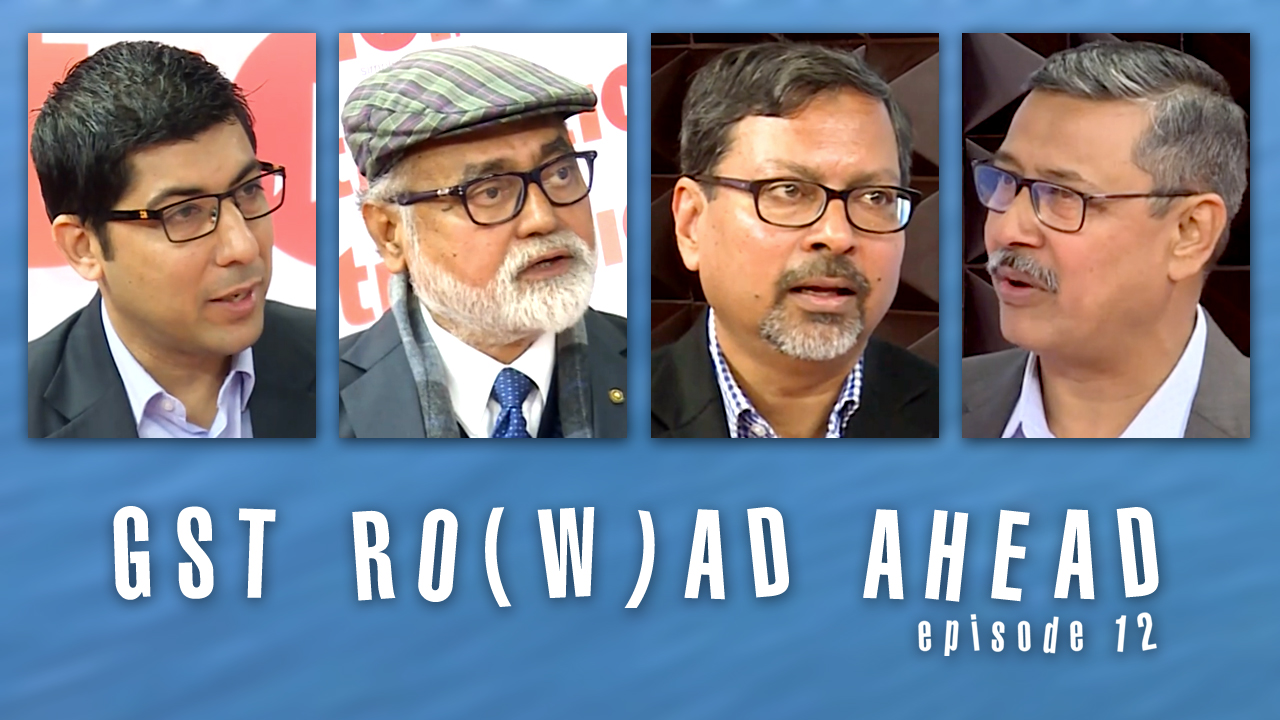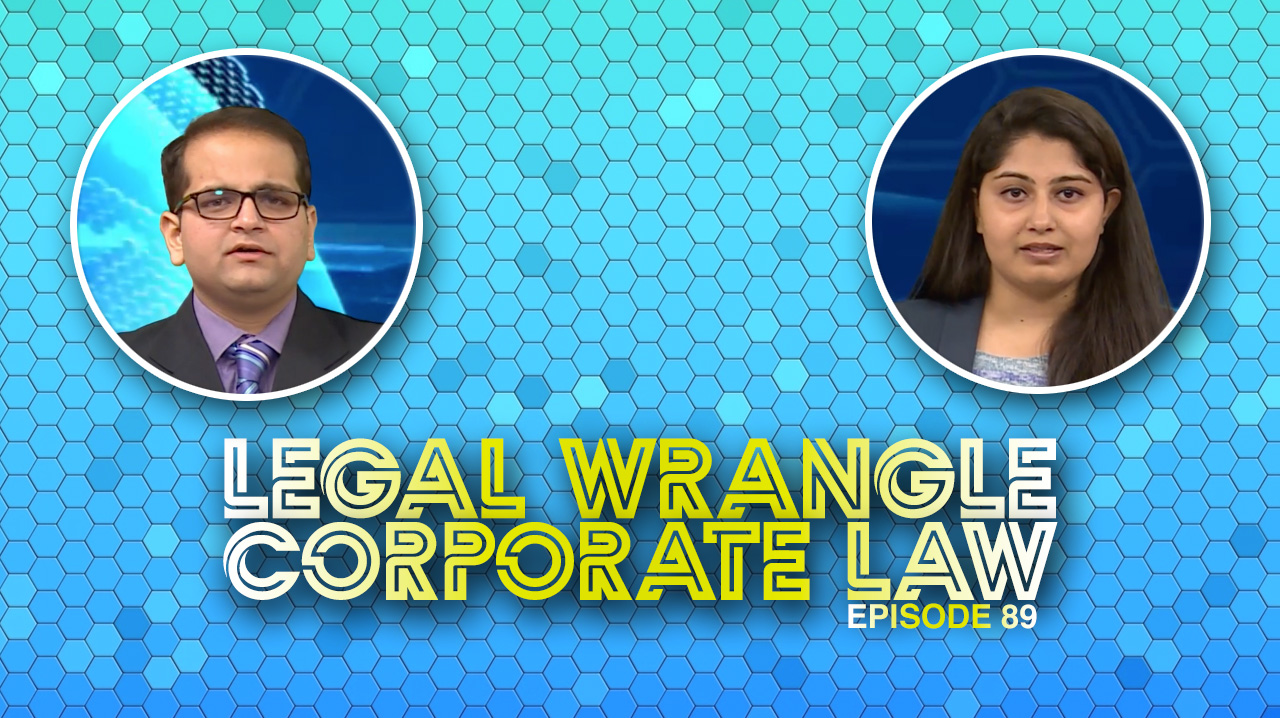SERVICE TAX
2019-TIOL-332-CESTAT-HYD B Girijapathi Reddy And Company Vs CC, CE & ST
ST - The assessee is a partnership firm engaged in removal of overburden for M/s Singareni Collieries Company Ltd (SCCL) and they have entered into an agreement with them - As per agreement the payment made by SCCL included all taxes - While determining the amount of service tax liability, assessee considered the amount received from SCCL as cum-duty amount and paid tax thereon - It was agreed that 90% of service tax discharged by them will be reimbursed by SCCL - They have not discharged service tax on full amount which they have received from SCCL - SCNs were issued to assessee alleging that they have failed to pay service tax on additional amount which they have received from SCCL and have contravened the provisions of Sec.66 of FA, 1994 read with Rule 6 of Service Tax Rules - As per Chapter V of FA, 1994, the service tax has to be levied on gross amount charged for the service - Wherever the gross amount charged includes service tax, the amount so charged is taken as cum-tax amount and the tax is calculated backwards - In this case, the amount received by assessee was much higher than what they have disclosed to department as a result of their re-negotiation with their clients and hence the differential duty arose - The amount received by them cannot be equated with reimbursable expenses incurred while rendering service which were not found exigible in case of Intercontinental Consultants & Technocrats Pvt Ltd - 2018-TIOL-76-SC-ST by Apex Court - It is also evident that assessee has not disclosed the facts of their re-negotiation with their client and that they are getting over and above the amount initially agreed upon - Therefore, there was clear suppression of fact with intent to evade duty - No reason found to interfere with impugned orders: CESTAT
- Appeals rejected: HYDERABAD CESTAT
2019-TIOL-331-CESTAT-ALL
CC, CE & ST Vs Fortune Cookie
ST - The assessee-company provided foods services to the Noida Golf Course during the period April 01, 2007 till March 31, 2012 - The 'restaurant services' became taxable in May 2011 & the assessee subsequently discharged service tax liability under this heading - The Department opined that the assessee was liable to pay service tax under 'Outdoor Catering Service' - Duty demand was raised with interest & imposition of penalty - Such demands were later set aside by the Commr.(A).
Held: Upon examination of the definitions of 'Restaurant Service' & 'Outdoor catering service', it is seen that the former service is to be provided at the premises of the service recipient, whereas the latter service is provided by the service provider at its own premises - In the present case, the place of service had been taken on rent by the assessee from the Noida Golf Course - Hence the place of providing the service is the premises of the assessee - Besides, it is seen that the assessee is maintaining a menu card and has fixed prices - There is no personal interaction with the service recipient - Hence the activity in question qualifies as 'Restaurant Service' and no demand under 'Outdoor Catering Service' is sustainable: CESTAT (Para 2,7,8)
- Revenue's appeal dismissed: ALLAHABAD CESTAT
2019-TIOL-330-CESTAT-MAD
Kanji Fabrications Pvt Ltd Vs CCE
ST - The assessee is a small scale industry engaged in manufacture of fabricated cabinets out of locally procured materials like MS Sheets, Angles and Flats - The said goods were made to order only for M/s. BPL Telecom Ltd. which were cleared on payment of central excise duty - M/s. BPL Telecom Ltd. has issued a separate purchase order for Galvanization and powder coating of the cabinets - Assessee, in turn, sent the goods to job workers for carrying out the said processes, respectively - The case of Department is that the activity of powder coating and galvanization undertook by job workers would fall under category of BAS and the assessee is therefore liable to pay service tax on the same - The core issues involved concern the availability of exemption in terms of Notfn 8/2005 as also whether the assessee has provided BAS - Chapter Note 4 to Chapter 73 clearly holds that in relation to products of the said chapter, the process of galvanization shall amount to "manufacture" - This being so, the process of galvanization will stay out of the purview of BAS, because, by definition, the BAS specifically excludes the activity of manufacture - Coming to the eligibility to Notfn 8/2005 as amended, an identical issue has been decided by Mumbai Bench of Tribunal in case of Endurance Systems India (P) Ltd. - 2014-TIOL-139-CESTAT-MUM in favour of assessee - Following the same, impugned order is set aside: CESTAT
- Appeal allowed: CHENNAI CESTAT
CENTRAL EXCISE
2019-TIOL-335-CESTAT-MAD
Maharaja Paper Board Pvt Ltd Vs CCE
CX - Assessee is engaged in manufacture of paper boards for availing SSI exemption under Notfn 8/2003-CE - They undertook job work for one Universal Paper Conversion (UPC) under Notfn 214/86-CE - It appeared that assessee had manufactured and cleared final products without accounting the inputs and clearance in Form-IV and in RG-1 Registers respectively - Assessee has submitted that duty liability requires redetermination by adoption of value of paper board at Rs.12 per kg. - They had also drawn attention to invoices of assessee made out to UPC in appeal book to point out that the value in both these invoices is Rs.12,000/- per ton which works out to Rs.12 per kg. - While this may indeed be the case, no further evidence has been submitted before any of the lower authorities or even before this forum, to establish that the pricing of Rs.12000 per ton was the rule and not the exception - On the other hand, SCN has elaborately gone into the raison d’etre for adopting the value of Rs.13 per kg. - The very same invoices had been produced before lower appellate authority who in impugned order has noted that there were invoices beyond the period of dispute - The plea of assessee on this score is therefore found to be specious and is therefore rejected - On the plea for cum-duty benefit, this is a case where entire transactions were done clandestinely, right from the getting raw materials, to the production and the clearances all of which were sought to be kept away from the eye of the department - There cannot be any mitigation of tax liability by grant of cum duty benefit - On this score also, assessee’s plea fails: CESTAT
- Appeal dismissed: CHENNAI CESTAT
2019-TIOL-334-CESTAT-CHD
CCE Vs Riat International
CX - The assessee is the manufacturer of Centreless Grinders and Surface Grinders and was availing SSI exemption - During an investigation, it was found that assessee was clearing their final products after affixing brand "RIAT" - A SCN was issued and the same was adjudicated, resulting in confirmation of demand along with interest and imposition of penalty of equivalent amount under Section 11AC of the Act - As per partnership deed, Sh. Nav Ratan Singh (father) and Sh. Davinder Singh and Sh. Jaspal Singh (sons) were its partners - The assessee have been using brand name "RIAT" on their product since 2001 - The demand is for the period 12.9.2002 to 4.4.2007 - The Commissioner (A) has given the benefit to assessee on the basis of family settlement deed which was executed by 3 partners of M/s. Riat Machines Tools - The respondents were given the exclusive right to use TM "RIAT" for two machines manufactured by them and were allowed to get that Trade Mark registered for the said two machines in their own name - It was also agreed upon that assessee would not use the Trade Mark "RIAT" on any other goods manufactured by them - The retirement deed was an overarching agreement wherein the retiring partner Sh. Jaspal Singh surrendered all sorts of their share and interest whatsoever whereas family settlement deed was specifically to transfer trade mark rights to Sh. Jaspal Singh - Main ground of department is that the family settlement deed was not mentioned in SCN nor mentioned during three statements of proprietor of assessee but was produced afterwards before the adjudicating authority as well as first appellate authority - The argument of Revenue is that family settlement deed dated 11.4.2002 is an afterthought to cover all the issues - However, veracity of the document has not been questioned nor is there any allegation that the document is fake or forged - The Commissioner (A) has correctly relied upon the family settlement deed - As rightly held by Commissioner (A), the terms of family agreement have clearly ruled out any scope of indicating a connection between the goods manufactured by assessee bearing the Brand Name "RIAT" and M/s. Riat Machine Tools, who were also be user of the same Brand Name but on different goods - No infirmity found in impugned order of Commissioner (A) and the same is upheld: CESTAT
- Appeal dismissed: CHANDIGARH CESTAT
2019-TIOL-333-CESTAT-HYD
Singareni Steels Pvt Ltd Vs CCE, C & ST
CX - Assessee (SSPL) is manufacturer of MS Ingots, Runners and Risers - M/s Kinnera Steels Pvt. Ltd., (KSPL) are manufacturers of M.S. Bars and Rods and is situated adjacent to SSPL - It was noticed that SSPL maintained private records showing production in terms of number of heats as well as particulars of consumption of electricity; maintained a note book of induction furnace for production of ingots; comparing the statutory production register, RG-1 and official heat register with the private records, it was observed that SSPL had not recorded production of 2335.253 MTS of MS ingots during the period 19.03.1988 to 30.04.1989; similarly for the period 01.05.1989 to 31.03.1990, there was an excess unaccounted production of 1761.291 MTS both worked out to be unaccounted production of 4096.544 MTS - Coming to an attentive conclusion that SSPL was liable to duty on this production, SCN was issued to them - The entire case of Revenue will stand or fall only if it is concluded whether assessee has recorded the correct production of MS ingots or otherwise - This is the third round of litigation before Tribunal on the very same issue - In first round of litigation, Adjudicating Authority confirmed the same demands raised against SSPL and imposed penalties, also on KSPL - The Adjudicating Authority in remand proceedings after following the direction of Tribunal, came to a conclusion that the clandestine manufacture is not evidenced as claimed by Revenue and based upon the declaration furnished by the manufacturers of the furnace; doubting the evidences of Revenue, Adjudicating Authority had dropped the proceedings initiated by SCN - Aggrieved by such an order, Revenue preferred an appeal before the Tribunal which was heard and Division Bench remanded the matter back to Adjudicating Authority giving some direction for examining certain relevant issues as to the production capacity, which could vital to the core issue as to whether SSPL had clandestinely manufactured and cleared MS ingots during the period in question - In the absence of any appeal against such findings, it has to be held that production capacity of assessee has to be considered as 2.1 MTs per heat, and has attained finality - The entire findings of the Adjudicating Authority are only on the records of both private and official showing the production of MS ingots per heat in the range of 3.5 to 3.8 MTs - The findings recorded by Division Bench as to the production capacity of assessee of furnace installed, has reached finality as recorded - Since these findings have attained finality, Adjudicating Authority could not have without filing an appeal and adducing contrary evidence gone beyond the findings recorded by Tribunal - In the absence of so, in adjudication order, Lower Authority should have followed the order of Tribunal and considered the production capacity of assessee as indicated in the Final Order - On this point itself, it has to be held that the allegation of Revenue that assessee had clandestinely manufactured excess production and removed the same without payment of duty falls flat - Lower authorities have erred in coming to a conclusion that there was excess production and clearances clandestinely from SSPL - The entire demand is set aside - Since the entire demand of assessee stands set aside, the question of interest and penalty does not arise, as also the question of imposing penalty of KSPL also does not arise: CESTAT
- Appeals allowed: HYDERABAD CESTAT
CUSTOMS
2019-TIOL-337-CESTAT-MUM + Case Story
Ashish Steel Vs CC
Cus - Refund of SAD - Notification 102/2007-Cus - Test of exclusion from 'receivables' is meaningless without examining the corresponding entry for goods lying unsold - all the goods were not sold in the year of import and no evidence is on record to controvert this finding - Accordingly, the inclusion of the said amount in the balance sheet for the financial year 2008-09 suffices to establish that the burden of special additional duty had not been passed on to the buyers in the preceding years - impugned order rejecting the refund claim on the ground that burden of duty had been passed on to customers is set aside and appeal allowed with consequential relief: CESTAT [para 4, 5]
- Appeal allowed: MUMBAI CESTAT
2019-TIOL-336-CESTAT-MUM
SRP Enterprises Pvt Ltd Vs CC, CE
Cus -Appellants had imported “TCL Still Image Digital Video Cameras-DV522” and claimed classification of the imported goods under CTH 8525 8039 and benefit of notification 25/2005-Cus - adjudicating authority denied the benefit of the notification by holding that the imported item is a Video Camera (Camcorder) whose main function is recording of images of moving objects and could not confine itself only to Still images - order was upheld by the Commissioner(A), therefore, appeal filed to CESTAT.
Held: Before the Commissioner(A) as well as before the CESTAT, in the grounds of appeal, even though the appellant had claimed that the product imported by them is not a video camera but meant to record still image primarily, no evidence is produced in support of this claim - while claiming the benefit of an exemption notification, the burden lies heavily on the person who claims the exemption - as the appellant could not discharge the said burden, in view of the principle laid down by the Supreme Court in the case of Dilip Kumar - 2018-TIOL-302-SC-CUS-CB, the impugned order is upheld and the appeal is dismissed: CESTAT [para 5]
- Appeal dismissed: MUMBAI CESTAT




 By Vijay Kumar
By Vijay Kumar




